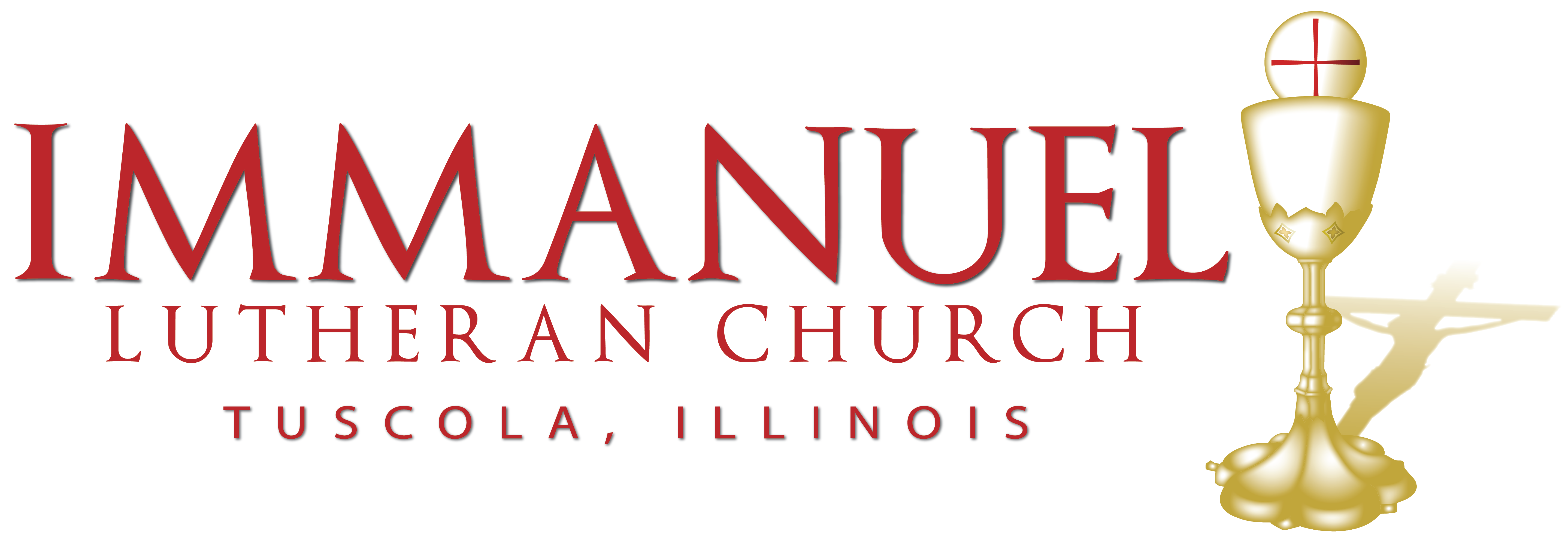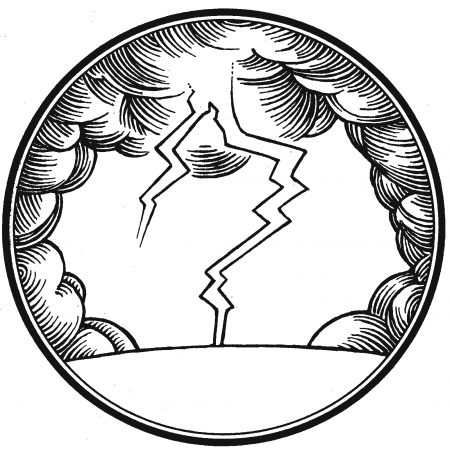The Twenty-Fifth Sunday after Trinity
Matthew 24:15–28; 1 Thessalonians 4:13–18
+ IN NOMINE IESU +
Abraham had struck a deal with the Lord. The Lord promised that if there were but ten righteous people in Sodom and Gomorrah, He would not destroy it. There weren’t. And so fire and brimstone was rained upon them until they were no more. But Lot and his family were spared. The destroying angels told them to flee and not to look back. And so Lot and his family fled, and they all stayed the course save one: Lot’s wife. She looked back. She longed for the comforts of her home, the things she left behind, the things she’d become accustomed to. And so with longing, she looked back and was turned into a pillar of salt.
So also the Israelites, enslaved in Egypt, under Pharoah’s harsh punishment, was called out into the wilderness. They were spared the destroying angel’s wrath upon the firstborn sons by the blood of the lamb upon their doorposts and lintels. They were called to meet the Lord at His mountain. And they were called not to look back. But they did. They longed for the meat pots and the cucumbers and the garlic of slavery. It was better, they thought, to live as slaves than to die free in the gracious presence of God. So they made for themselves a golden calf. This would be their god. They would even call it by the name revealed to Moses, but the image was that of the gods of Egypt. They couldn’t let go. They looked back fondly upon their slavery, and thus, they all perished in the wilderness, never to see the promised land.
In the same way, our Lord said, “When you see the abomination of desolation, flee.” He wants us to flee the things that call us away from Him and not look back. We aren’t so prone to turning statues into gods. We turn to good things and make them evil. We make gods of wives, jobs, children, reputations. We worship health, money, and pleasure. Those are the things we think we need. But the Lord pops His head in the door and says, “Let’s go. Leave it. Leave now. And don’t look back.”
This world is coming to an end. It is under a death sentence. It will not go on. Perhaps it will be global warming or global freezing, a meteor or the nuclear bomb. It doesn’t matter. The point is that it is ending. It is inevitable. And our hope cannot be in this world.
Our few days, full of trouble, are coming to an end. You’re leaving—one way or another. Whether the call comes from the Lord as the world burns or before, the call will come. Are you ready to leave that which you love for Him who loves you and calls you to leave?
Ours is a faith built upon history, the historic fact of Christ crucified, the innocent and pure desolated as an abomination for the vile offenders and sinners who deserved what He endured. Let us gather around that reality like vultures around a corpse. Let it draw us like cream draws kittens. The cross is the source of our Life in Christ. Look the cross. Leave everything else behind. And don’t look back.
Ours is a faith that also, even as it gathers around the cross, looks forward, eagerly, to the Kingdom of glory. For Jesus is coming back. He calls us to our true home. And we will be with Him always. Look to the coming future He promises. And don’t look back.
But ours is a faith that lives now, in the present. We confess: “Jesus lives.” He lives now. And now, here in time, here in this building, here upon this altar, the Lord comes with forgiveness, acceptance, and refreshment in His physical Body and Blood for us physical sinners. Jesus lives. He comes also in His Holy Word and Absolution, in Hymn and Chant. He speaks the Baptized clean. He renews wedding vows. He confirms the catechumens in their faith. He blesses the sick and dying and sets us toward His final summons. And He ever hears the fervent prayers of His people. His Name is upon us and He comes for us.
And since ours is a faith that lives now in the present, though we flee from all that would draw us away from Christ and don’t look back, we aren’t running away aimlessly. We flee to something new. We build a new home, a new culture, a new life. Our cultures, our churches, our families all must be rebuilt, renewed through the Word and promise of God, which is good and true and beautiful. We didn’t get this way overnight and it won’t turn back overnight. It will take time. And we can’t waste it by complaining how difficult it’s going to be and how long it is going to take. We must simply start somewhere, anywhere. But we must start.
And so, we must **“acquaint yourself with the proper use of the zipper. We’ve all been scorched by the sexual revolution. The ancient Christians knew they were living among hedonists, but plenty of the pagans, especially those who lived outside of the cities, were old-fashioned in their mores. The Christians could say that they honored the virtue of chastity, which the pagans recognized but often violated. We cannot say that now. We have to tell ourselves and our children the truth. There is no way to make it sound nice. “We are Christians, they are not. How God judges them is not ours to know. Our first task is to follow God’s law ourselves, before we can witness to them. [In fact, following it is a witness.] We do not fornicate. We do not divorce. We do not engage in sodomy. We do not use porn. We do not care for obscenities in film. We do believe in marriage according to the evident design of God, imprinted upon our bodies male and female. We encourage boys to be boys and girls to be girls.” What happened to the healthy customs whereby the older generation made sure that the younger generation would get on with the great and innocent business of new life? Establish them again. Begin.
“Be social. Be human. I’ve heard that the Church has nothing at all for the laity. Really? What then were all those ecclesial fraternities and sororities? So laymen did not potter about the altar during the Divine Service. They certainly pottered about everything else before and after Mass. They played basketball, they put on shows, they sang, they maintained the church grounds, they gathered for communal prayer, they fed the hungry, they taught the ignorant, they celebrated, they paraded down the main street. The official organs of public opinion hate us, and would like nothing better than to have us hang about empty churches like bats in a cave. Let them have more obvious opportunities for their hatred—or perhaps their conversion. Luther had for a long time only a few followers. He persisted, and the Lutherans became one of the greatest forces for education and human culture and the propagation of the faith that the world has ever known. Begin.
“Read good books. Our Lord has granted us one of the most precious blessings in war. Our enemies are ignorant. They are clever—they have brains, as all human beings do. But imagine a rickety fence against a cannon: that’s our contemporary journalist against Chesterton. Imagine a squirt gun against a battering ram: that’s our contemporary educator against the likes of Luther and Walther. Imagine a flea against an elephant: that’s our contemporary advertiser against our Lutheran Confessions and the Catechism. Imagine a dented bugle against a cordon of trumpeters: that’s our contemporary artists against Shakespeare and Dante, Bach and Gerhard, Cranach and Michaelangelo. Put on the full armor of God. Those arms may well include the weapons of natural law and natural wisdom that our sub-pagan neighbors have never mastered: Cicero, Aristotle, Plato, Luther, Walther, Lewis. Don’t know where to begin? It hardly matters where. Begin.
“Recover the human things. You remember them? The things that human beings used to do. They are not to be underestimated. We’ve all lost a great deal of what once made up whatever sweetness that human life had to offer. People used to dress becomingly, play cards, talk to others, take long walks, sing songs, play ball, strum on the guitar around camp fires, drop in on friends, and have friends that dropped in on us, knew all their neighbors on the block by name. Boys used to ask girls to do innocent things with them, like go bowling, or attend a concert, or dance. Learn how to dance again. The world, besides being quite mad, is now an unspeakably drab, tawdry, and lonely place. Build outposts of normality. It will take time. Begin.
“Pray like the pilgrim you are. That goes without saying. If you pray for ten minutes a day, pray for fifteen. But pray with a clearer aim. Remember that you are going somewhere. Its name, in one sense, is the grave. The whole world is in mad denial of that plain fact. It turns to the garish and obscene, lest it have to consider the quiet grassy mound and the stone with a few words on it. Be different. You are on the way. Take heart, and don the hat of the pilgrim. Do not be like those who have no hope. Jesus has gone before us to prepare a place. Will you have to repent of having sometimes gotten on the carousel of the world? Repent of it then. Begin.”**
So begin. We know what to do. It doesn’t matter where we start. It all must be done. No one can do everything. But everyone can do something. And the Lord, who calls us to leave and not look back has given us all the tools. Encourage one another with these words. Begin. Amen.
** quoted from Anthony Esolen’s, “Out of the Ashes,” with minor changes.



One Comment
Thanks for publishing these sermons…..on evenings and times that I am alone or happen to be happy or depressed. I often come to this site and listen to a sermon….the Word of God, and always depart better for it.
May God continue to bless your calling. and “feed the sheep”…..
Blessing and peace to you and yours.
Thomas M Hawkins Jr.